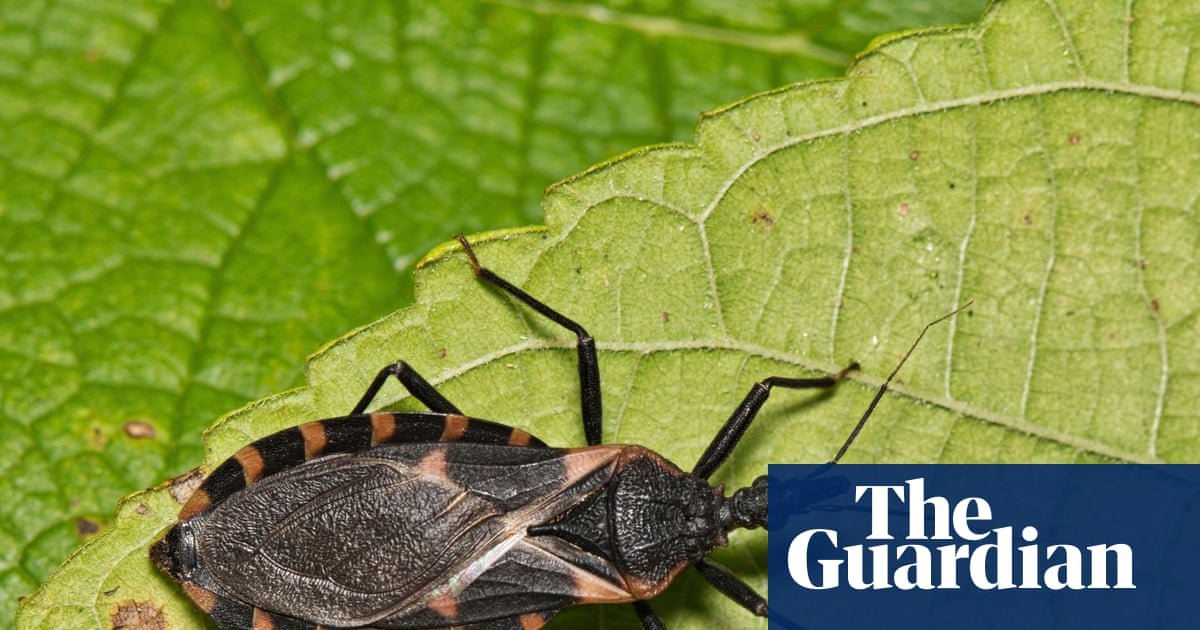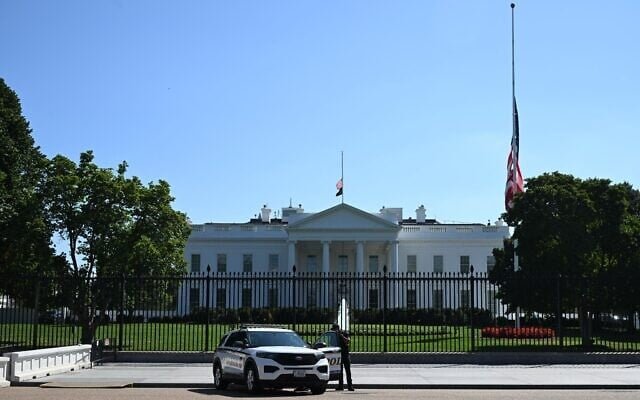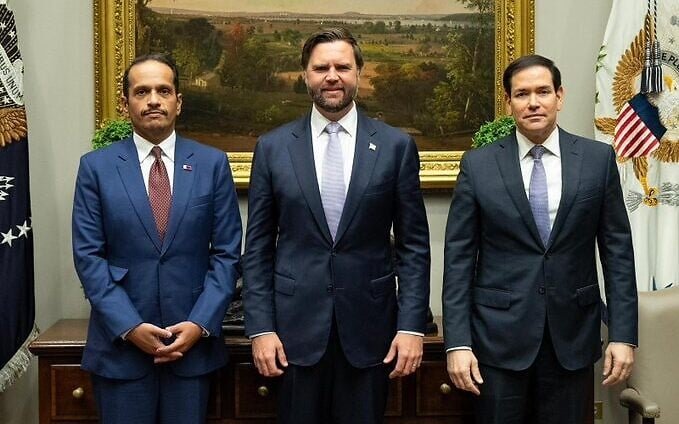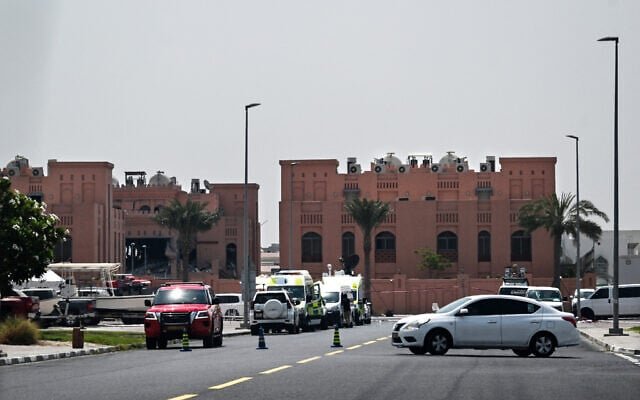Top Stories
Carlos Alcaraz powers past Jannik Sinner in four sets to win US Open | US Open Tennis 2025

When Carlos Alcaraz is fully focused and his impossibly complete game is in full flow, nothing in the world can stop him. As he has spent the early years of his career collecting major titles at a breathless pace, this has been clear for a long time. On the biggest stage in tennis, he reinforced the sentiment with a stupendous performance against his greatest rival, completely outplaying Jannik Sinner, the No 1 and defending champion, to lift his second US Open title with a 6-2, 3-6, 6-1, 6-4 win.
At the end of his most spectacular summer, Alcaraz will replace Sinner as world No 1, returning to the top ranking for the first time in two years. The 22-year-old also continues to mark himself as one of the greatest ever young players: he is the second-youngest man in the Open era to earn six grand slam titles, trailing only Björn Borg. He is also already the fourth man to win multiple grand slam titles on all three surfaces.
This match-up marked the first time the same men have competed in three major finals in the Open era in the same calendar year, with Alcaraz finishing the trilogy with a 2-1 lead. He now holds a 10-5 record over Sinner, winning seven of their past eight meetings.
On this occasion, Alcaraz could do anything he wanted with the tennis ball for the best part of three hours. He served brilliantly and struck his devastating forehand with total precision, but he also showcased his variation in full, constantly varying the pace, spin and trajectory of his shots. He kept Sinner completely off balance and unable to gain any rhythm with his destructive groundstrokes.
This was one of the most significant days of the tennis year, and yet the narrative was hijacked by the presence of Donald Trump, the US president. Overnight, Arthur Ashe Stadium was tightly encircled by airport-style security barriers and as fans began to queue up in order to enter the stadium, they were watched over by Secret Service agents. The men’s trophy was placed in the Rolex suite alongside Trump, which is not the usual protocol. When the US president was finally shown on the big screen at the end of the first set, most of the audience booed.
As 2pm approached, the embarrassment continued for the United States Tennis Association. Due to the dramatically heightened security, the queues to enter the stadium spanned across the tournament grounds and the start was delayed until 2.30pm. The final began with thousands of fans still waiting to take their seats. Hundreds were still outside during the second set.
Nobody, it turns out, was as excited for a rematch of the French Open and Wimbledon finals as Alcaraz himself. He was spellbinding from the beginning, every part of his prodigious game flowing. He continued the excellent serving form that has guided him through the tournament and he struck his destructive forehand with total freedom, completely dominating the baseline.
At the core of his performance, though, was the way he unfurled the various layers of his impossibly complete game, forcing Sinner to deal with skidding low slices, forays to the net, constant changes to the trajectory of the ball and drop shots. With the roof closed due to rain, the sterile indoor conditions were widely considered a positive for Sinner, but Alcaraz set the tone with a flawless opening set.
after newsletter promotion
After facing an hour of relentless pressure, Sinner dragged himself into the match on Alcaraz’s serve at 2-1, closing out a brilliant point after a masterful forehand drop volley to reach 0-30 before breaking serve to love. After hitting just two unforced errors in set one, Alcaraz’s growing error count allowed Sinner to grow into the match. Suddenly, Sinner was hitting his spots with his first serve and controlling many more of the exchanges with his destructive, metronomic ball striking as he efficiently levelled the match.
Less than two months ago at Wimbledon, Sinner trailed Alcaraz by a set before bulldozing through the final three sets. There would be no repeat here. Alcaraz recovered, re-establishing his dominant serving, his variation and his control of the baseline. After snatching the opening break, he flitted through the third set to establish a two sets to one lead before immediately generating break points on Sinner’s serve.
With his back to the wall, Sinner fought desperately until the end. He won many of the frenetic, scattered cat-and-mouse points typical of this rivalry, including a stunning combination of volleys down break point at 0-1 in the fourth set that drew a finally full stadium to its feet. However, when he is in this mood, and everything is flowing so effortlessly, Alcaraz’s game can scale to heights that nobody else, including Sinner, can reach. Even now, six majors in, it feels as if he has only just begun.
Top Stories
Trump calls on all NATO countries to stop buying Russian oil, threatens 50% to 100% tariffs on China

BASKING RIDGE, N.J. (AP) — President Donald Trump said Saturday he believes the Russia-Ukraine war would end if all NATO countries stopped buying oil from Russia and placed tariffs on China of 50% to 100% for its purchases of Russian petroleum.
Trump posted on his social media site that NATO’S commitment to winning the war “has been far less than 100%” and the purchase of Russian oil by some members of the alliance is “shocking.” As if speaking with NATO members, he said: “It greatly weakens your negotiating position, and bargaining power, over Russia.”
Since 2023, NATO member Turkey has been the third largest buyer of Russian oil, after China and India. according to the Centre for Research on Energy and Clean Air. Other members of the 32-state alliance involved in purchasing Russian oil include Hungary and Slovakia.
Trump’s post arrives after the recent flight of multiple Russian drones into Poland, an escalatory move by Russia as it was entering the airspace of NATO ally. Poland shot down the drones, yet Trump played down the severity of the incident and Russia’s motives by saying it “could have been a mistake.”
While Trump as a candidate promised to end the war quickly, he has yet to hit the pressure points needed to end the violence and has at times been seen as reluctant to confront Russian President Vladimir Putin. Congress is currently trying to get the U.S. president to back a bill toughening sanctions, after Trump last month hosted Putin in Alaska for talks that failed to deliver on progress toward peace.
Trump in his post said that a NATO ban on Russian oil plus tariffs on China would “also be of great help in ENDING this deadly, but RIDICULOUS, WAR.”
The president said that NATO members should put the 50% to 100% tariffs on China and withdraw them if the war that launched with Russia’s 2022 invasion of Ukraine ends.
“China has a strong control, and even grip, over Russia,” he posted, and powerful tariffs “will break that grip.”
The U.S. president has already placed a 25% import tax on goods from India for its buying of Russian energy products.
In his post, Trump said responsibility for the war fell on his predecessor, Democrat Joe Biden, and Ukrainian President Volodymyr Zelenskyy. He did not include in that list Putin, who launched the invasion.
Trump’s post builds on a call Friday with finance ministers in the Group of Seven, a forum of industrialized democracies. During the call, U.S. Trade Representative Jamieson Greer and Treasury Secretary Scott Bessent called on their counterparts to have a “unified front” to cut off “the revenues funding Putin’s war machine,” according to Greer’s office.
Top Stories
‘Kissing bug’ disease should be treated as endemic in US, scientists say | US news

In February, Luna donated blood at her high school in Miami, with the goal of helping save others.
“She was very proud to come home and say, ‘I gave blood today,’” her mother, Valerie, said. (The Guardian is not using the mother or daughter’s full names to protect their privacy.)
It turned out, she was not able to save someone else’s life but potentially prevented herself from having serious health issues.
A couple months later, she received a letter from the blood donation company informing her that she could not give blood. She had tested positive for Chagas disease, which is caused by a parasite spread by triatomine bugs, otherwise known as kissing bugs.
Neither Luna nor Valerie had heard about the disease, which is most common in rural parts of Mexico and Central and South America, where their family had traveled.
“If you get a letter that tells you, you have blood cancer, you know what it is. But when you receive a letter and you hear, ‘Oh, your daughter has Chagas,’ … you’re like, oh, what is this?” said Valerie.
Dr Norman Beatty, who has studied the kissing bugs, said that like Valerie and Luna, most people in the US have not heard of Chagas, even though it is not just present south of the border but within the country.
Beatty, an associate professor of medicine at the University of Florida College of Medicine, is part of a group of scientists that authored a new report arguing that the United States should treat Chagas as an endemic disease, meaning that there is a constant or usual prevalence of a disease or infectious agent in a population within a geographic area.
They hope to increase public awareness of Chagas, which while rare, can cause serious health problems.
“My hope is that with more awareness of Chagas, we can build a better infrastructure around helping others understand whether or not they are at risk of this disease” and cause people to think about it similarly to other vector-borne illnesses, like from mosquitoes and ticks, said Beatty. “We need to add kissing bugs to this list.”
Bugs spread the parasite through their droppings, which can infect humans if they enter the body through a cut or via the eyes or mouth, according to the Centers for Disease Control and Prevention.
It can cause symptoms such as fever, fatigue and eyelid swelling in the weeks or months after infection.
Some people, like Luna, do not develop any symptoms – at least initially – but about 20 to 30% of people infected can develop chronic issues later in life such as an enlarged heart and heart failure, or an enlarged esophagus or colon, leading to trouble eating or going to the bathroom.
About 8 million people, including 280,000 in the United States, have the disease, according to the CDC.
It is not a recent arrival to the US. The 1,200-year-old remains of a man buried in south Texas revealed that he had Chagas and an abnormally-enlarged colon, according to a report in the Gastroenterology journal.
More recently, human development in new areas has brought us “closer to the kissing bugs’ natural environment”, Beatty said.
People in at least eight states have been infected with Chagas from local bugs, according to the new report, which was published in the CDC’s Emerging Infectious Diseases journal.
But the fact that it has not been declared endemic to the United States has led to “low awareness and underreporting”, the report states.
A 2010 survey conducted of some American Medical Association providers found that 19% of infectious disease doctors had never heard of Chagas and 27% said they were “not at all confident,” in their knowledge of the disease being up to date.
“If you ask physicians about Chagas, they would think that it is either something transmitted by ticks … or they would say that’s something that doesn’t exist in the US,” said Dr Bernardo Moreno Peniche, a physician and anthropologist who was one of the authors of the report with Beatty.
But Beatty sees people with Chagas every week at a clinic in Florida dedicated to travel medicine and tropical diseases. (Those patients were infected with Chagas in Latin America.)
Beatty said there is a misconception that tests for Chagas are not reliable or available in the United States.
“We have the infrastructure to start screening people who have had exposure to these bugs and who may be in a region where we had known transmission, so we should be thinking about this as kind of routine care,” Beatty said.
After Valerie received the letter about Luna’s infection, she contacted her pediatrician who quickly responded and told them to see an infectious disease doctor.
That physician told them it was likely a “false positive” and ordered additional tests before eventually starting treatment, Valerie said.
Frustrated by the medical care, Valerie sought out a new physician and found Beatty, who prescribed a different anti-parasitic therapy.
Even among people like Luna who are not experiencing any symptoms, such treatment is often recommended, Beatty said.
The goal is to “detect early and treat early to avoid the chronic, often permanent damage that can occur”, Beatty explained.
The treatment took two months, during which Luna experienced side effects like hives and severe swelling in her hands and feet, she said.
While she is finished with the treatment, there is no definitive test to determine whether such patients will develop chronic Chagas symptoms, but it’s less likely, Beatty said.
“I hope the CDC takes it seriously,” Valerie said, “and that we can move forward and have good awareness, so that people want to be tested and get tested and get the treatment they need.”
Top Stories
Trump and Witkoff dine with Qatari PM in NY, days after Israeli strike on Hamas in Doha

NEW YORK — US President Donald Trump held dinner with the Qatari prime minister in New York on Friday, days after US ally Israel attacked Hamas leaders in Doha.
Israel attempted to kill the leaders of the terror group with an attack in Qatar on Tuesday, a strike that risked derailing US-backed efforts to broker a truce in Gaza and end the nearly two-year-old conflict. The attack was widely condemned in the Middle East and beyond as an act that could escalate tensions in a region already on edge.
Trump reportedly expressed annoyance about the strike in a phone call with Prime Minister Benjamin Netanyahu, as well as in public, and sought to assure the Qataris that such attacks would not happen again.
Trump and Qatari Prime Minister Sheikh Mohammed bin Abdulrahman al-Thani were joined for the meal by a top Trump adviser, US special envoy Steve Witkoff.
“Great dinner with POTUS. Just ended,” Qatar’s deputy chief of mission, Hamad Al-Muftah, said on X.
The White House confirmed the dinner had taken place but offered no details.
Members of the Secret Service block the street in front of the White House as US Vice President JD Vance and Secretary of State Marco Rubio meet with Qatari Prime Minister Sheikh Mohammed bin Abdulrahman al-Thani in Washington, DC, on September 12, 2025 (ANDREW CABALLERO-REYNOLDS / AFP)
The session followed an hour-long meeting that al-Thani had at the White House on Friday with Vice President JD Vance and US Secretary of State Marco Rubio.
A source briefed on the meeting said they discussed Qatar’s future as a mediator in the region and defense cooperation in the wake of the Israeli strikes against Hamas in Doha.
Qatar’s Foreign Ministry said in a statement that Vance and Rubio expressed their appreciation for Qatar’s “tireless mediation efforts and its effective role in bringing peace to the region,” and said that Doha is a “reliable strategic ally of the United States of America.”

From L-R: Qatar’s Prime Minister Sheikh Mohammed bin Abdulrahman al-Thani, US Vice President JD Vance, and US Secretary of State Marco Rubio, meet in Washington, DC, September 13, 2025. (Qatar’s Foreign Ministry/X)
Thani “affirmed that the State of Qatar will take all measures to protect its security and safeguard its sovereignty in the face of the blatant Israeli attack,” the statement read.
Trump has said he is unhappy with Israel’s strike, which he described as a unilateral action that did not advance US or Israeli interests.
Nevertheless, Rubio is set to leave for a visit to Israel on Saturday, where he will speak to Israeli leaders about “our commitment to fight anti-Israel actions including unilateral recognition of a Palestinian state that rewards Hamas terrorism,” US State Department spokesman Tommy Pigott said in a statement on Friday.

Damage is seen after an Israeli strike targeted a compound that hosted Hamas’ political leadership in Doha, Qatar on September 10, 2025 (AFP)
Washington counts Qatar as a strong Gulf ally. Doha has been a main mediator in long-running negotiations for a ceasefire between Israel and the Palestinian terror group Hamas in Gaza, for the release of Israeli hostages held in Gaza, and for a post-conflict plan for the territory.
Al-Thani blamed Israel on Tuesday for trying to sabotage chances for peace but said Qatar would not be deterred from its role as mediator.
Israel’s security establishment now increasingly believes it failed to kill any of Hamas’s top brass who were gathered at the site of Tuesday’s strike in Doha.
Hamas identified the dead as Jihad Labad, head of the office of top Hamas official Khalil al-Hayya; al-Hayya’s son Hammam al-Hayya; and three others described as “associates” — either advisers or bodyguards: Abdallah Abd al-Wahid, Muamen Hassouna and Ahmad Abd al-Malek. In addition, a Qatari security officer, Lance Corporal Badr Saad Mohammed al-Humaidi al-Dosari, was killed.
Doha will host an emergency Arab-Islamic summit on Sunday and Monday to discuss the Israeli attack, Qatar’s state news agency reported.
-

 Business2 weeks ago
Business2 weeks agoThe Guardian view on Trump and the Fed: independence is no substitute for accountability | Editorial
-
Tools & Platforms1 month ago
Building Trust in Military AI Starts with Opening the Black Box – War on the Rocks
-

 Ethics & Policy2 months ago
Ethics & Policy2 months agoSDAIA Supports Saudi Arabia’s Leadership in Shaping Global AI Ethics, Policy, and Research – وكالة الأنباء السعودية
-

 Events & Conferences4 months ago
Events & Conferences4 months agoJourney to 1000 models: Scaling Instagram’s recommendation system
-

 Jobs & Careers2 months ago
Jobs & Careers2 months agoMumbai-based Perplexity Alternative Has 60k+ Users Without Funding
-

 Podcasts & Talks2 months ago
Podcasts & Talks2 months agoHappy 4th of July! 🎆 Made with Veo 3 in Gemini
-

 Education2 months ago
Education2 months agoVEX Robotics launches AI-powered classroom robotics system
-

 Education2 months ago
Education2 months agoMacron says UK and France have duty to tackle illegal migration ‘with humanity, solidarity and firmness’ – UK politics live | Politics
-

 Podcasts & Talks2 months ago
Podcasts & Talks2 months agoOpenAI 🤝 @teamganassi
-

 Funding & Business2 months ago
Funding & Business2 months agoKayak and Expedia race to build AI travel agents that turn social posts into itineraries


